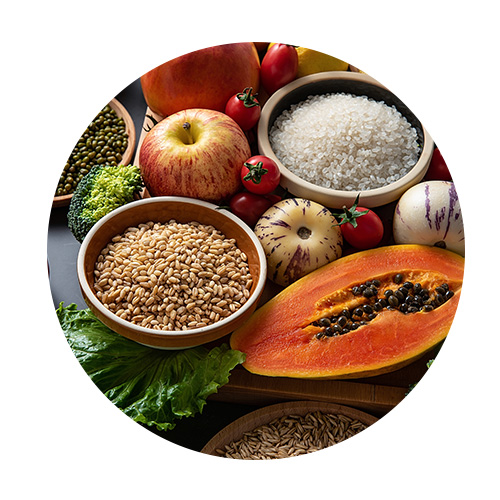
A recent review summarized the available evidence on the importance of diet in optimizing musculoskeletal health. This work stresses the importance of a diverse diet – including cruciferous vegetables and green leafy vegetables rich in vitamin K – for optimizing musculoskeletal health. To know more, discover our food, health and sustainability watch.

A recent review examined the available evidence on the role of diet in cardiovascular disease prevention. The study focuses on the effects of individual macronutrients, whole foods and dietary patterns. This work confirms the existing literature and concludes that high consumption of saturated fat, sweetened beverages, red and processed meat and salt is associated with an increased risk of cardiovascular disease. Conversely, a high intake of dietary fibre, nuts and fruit and vegetables, reduces the risk. Of all the dietary models studied, the Mediterranean diet appears to be the most beneficial for the prevention of cardiovascular disease.

A systematic review of the literature explored the potential benefit of polyphenols in Parkinson’s disease. 5 studies were selected from a total of 1100. According to this work, the consumption of flavonoids, anthocyanins or 2 to 5 portions per week of certain foods could reduce the risk of Parkinson’s disease, as well as the associated mortality. A Treatment with liquorice, curcumin or cocoa, rich in flavonoids and other polyphenols, has been proven effective in improving motor function in Parkinson’s patients. However, no significant differences were observed regarding the quality of life, disease progression or cognitive ability and mood. Further clinical studies are needed to assess the effect of other polyphenols in Parkinson’s disease.

A cross-sectional study explored the relationship between fruit and whole-grain consumption, caloric intake and the composition of gut microbiota in the Chinese population. The study involved 167 subjects aged between 40 and 75. Each participant completed a 7-day food frequency questionnaire and provided a faecal sample. The relationship between diet and gut microbiota was assessed in terms of overall composition and abundance of specific taxa. Results showed that fruit consumption was positively associated with the abundance of certain genres in faecal samples. Increased consumption of wholegrain cereals was associated with greater microbial diversity. These findings underline the potential of nutritional interventions to modulate gut microbiota and promote overall health.

A recent study explored the association between circadian rhythms, mealtimes and fast timing, and the incidence of cardiovascular disease. The study examined data from 103,389 adults who participated in the NutriNet-Santé study. Meal timing and the number of eating occasions were estimated from 24-hour dietary records. The results show that delayed mealtimes are associated with a higher risk of cardiovascular disease, especially amongst women. To prevent the onset of these pathologies, the authors recommend adopting eating habits that combine a longer nighttime fasting with earlier consumption of the last meal, rather than skipping breakfast.

In the context of preventing falls and fractures in the elderly, a recent review summarized the available evidence on the importance of diet in optimizing musculoskeletal health. In particular, this work recalls the essential role of certain nutrients such as calcium, vitamin D, vitamin K1 and proteins in muscle function and bone integrity. In a second part, the study discusses the potential consequences of switching from animal-based products to plant-based foods for musculoskeletal health in older people. To conclude, the authors stress the importance of a diverse diet – including cruciferous vegetables and green leafy vegetables rich in vitamin K – for optimizing musculoskeletal health.




